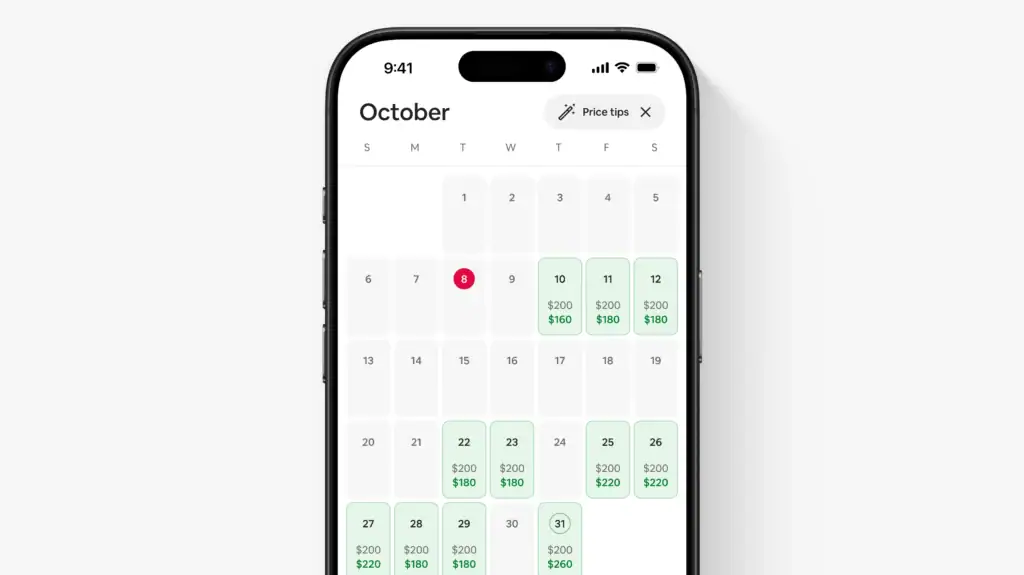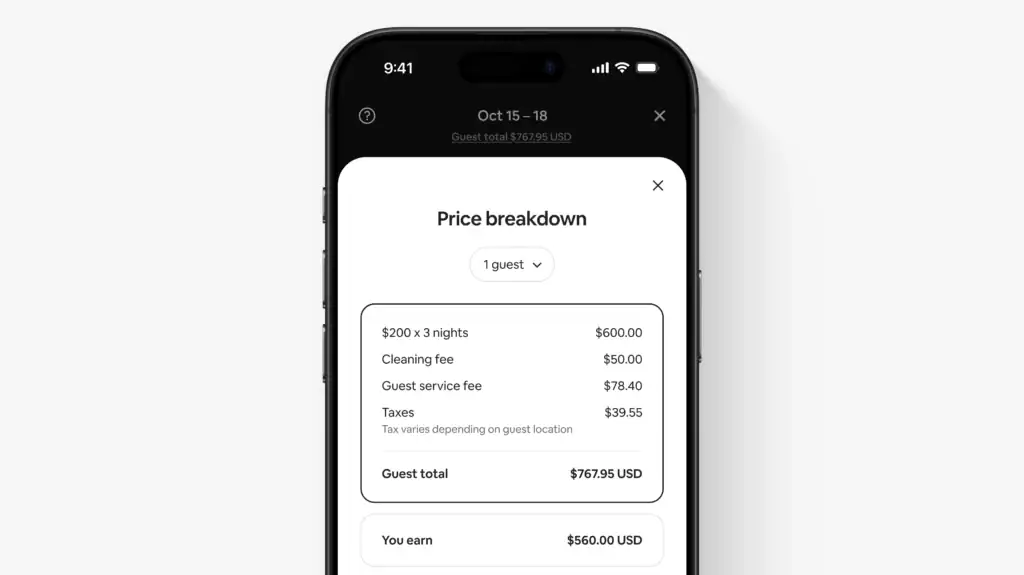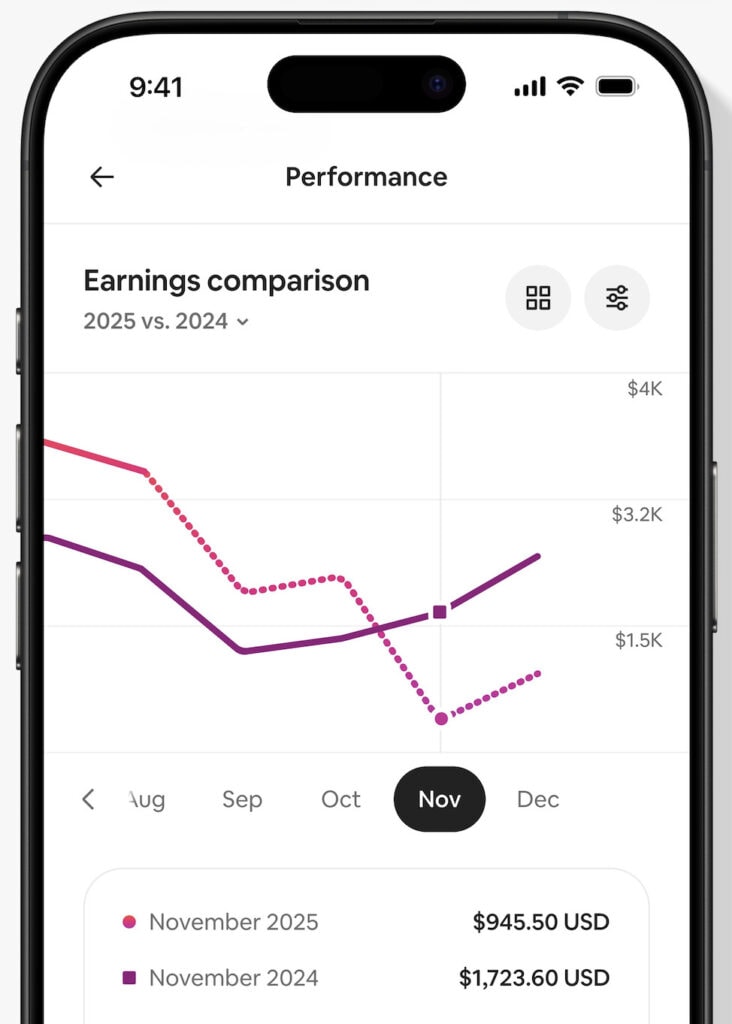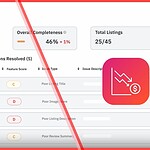Airbnb’s latest host update isn’t just about convenience. It’s a preview of the company’s next stage of professionalization, one where pricing, cancellations, and payouts are managed inside Airbnb’s own ecosystem, not across multiple third-party tools.
The updates announced on October 21, 2025, include dynamic cancellation policies, improved price tips, a redesigned earnings dashboard, and several quality-of-life upgrades to the host interface.
Each feature is designed to make hosting simpler, but also signals Airbnb’s ambition to become the all-in-one control center for professional managers.
1. Dynamic Cancellation Policies
Airbnb will soon let hosts assign different cancellation policies (Flexible, Moderate, Limited, or Firm) to different periods. For example, stricter terms during high season and more lenient ones during shoulder months.
Rollout: Dynamic cancellation policies will begin rolling out to a limited number of hosts in November 2025, with broader availability expected in early 2026.
Why it matters
For professional managers, this is effectively calendar-based risk management. You’ll be able to:
- Use Firm or Limited for peak seasons and events to protect revenue.
- Switch to Moderate in off-peak periods to attract hesitant bookers.
- Automate these shifts instead of manually toggling policies each quarter.
The shift balances guest flexibility with host control, removing the bad optics of “Strict” while still allowing you to defend high-yield periods.
Next step
- Identify your peak, shoulder, and low seasons and match each to an appropriate policy.
- Watch your Host Dashboard notifications in November. If you’re in the limited rollout, start testing how dynamic rules interact with your PMS or channel manager.
- If you’re not yet included, prepare your seasonality map so you can apply these rules efficiently when the feature reaches you in early 2026.
2. Improved Price Tips
Airbnb’s Price Tips will now display up to one year in advance (previously limited to roughly 30–90 days), and hosts can review and apply all recommendations from a single dashboard tab.
The algorithm now combines local market trends, booking velocity, lead times, and property-specific data to refine its recommendations.
Rollout: The new Price Tips will begin rolling out to a limited number of hosts in November 2025, with broader availability in early 2026.
Why it matters
For casual hosts, this makes Airbnb’s native pricing smarter and more proactive. For professional managers, it’s a signal that Airbnb is closing the gap with third-party revenue tools.
The benefit isn’t in replacing your tools but in benchmarking Airbnb’s internal data:
- See what Airbnb’s algorithm expects guests to pay in your market.
- Compare that with your dynamic pricing software’s forecast.
- Use differences to spot demand surges or underpriced windows early.
Next step
- Once you gain access, cross-check Airbnb’s year-ahead pricing curve against your rates.
- Use the single-tab view to bulk-apply or reject tips as a team, instead of toggling date by date.
- Treat the insights as directional data, not replacements for your existing yield strategy.

3. Trip Price Previews
Airbnb now shows what guests will pay and what you’ll earn when you adjust nightly rates, both individually and in bulk.
Why it matters
No more guessing net payout after fees. This transparency helps managers adjust rates confidently while aligning with owner revenue goals.
Next step
- Use previews to test how seasonal or event pricing affects your payout per stay.
- Incorporate this check into your standard rate-adjustment workflow.

4. Updated Earnings Dashboard (Coming Early 2026)
A redesigned Earnings Dashboard will include year-over-year comparisons (e.g., November 2025 vs. November 2024) and clearer payout tracking across listings.
Why it matters
It’s Airbnb’s first move toward performance analytics inside the platform. Managers can use it to verify payouts, explain trends to owners, and benchmark performance without exporting raw data every month.
Next step
- Export your 2024–2025 earnings history now to create a baseline.
- Once the new dashboard launches, reconcile Airbnb’s metrics with your PMS data for accuracy.

5. Calendar & Interface Improvements
- Blocked-night notes: Leave reminders for maintenance, owner stays, or cleanings.
- Shortened currency display: Large totals now show compactly (e.g., “$35.1K”).
Why it matters
These minor upgrades streamline communication and scheduling for teams managing multiple listings or owners.
6. Guest-Facing Upgrades
What’s new
- Reserve Now, Pay Later: So far only available in the US, the option to allow guests to book eligible stays with $0 upfront has begun rolling out to select guests globally.
- Smarter Search: Airbnb now surfaces listings slightly outside guest filters: nearby cities, different amenities, or comparable prices.
- Improved Maps: Guests can explore nearby landmarks, restaurants, and attractions with new filter options and alternate map views.
Why it matters
These updates expand listing visibility and conversion opportunities. “Pay Later” may attract more hesitant travelers, especially for premium stays, though managers will need to watch for higher cancellation rates.
The Bigger Picture
Airbnb’s latest upgrades are a strategic tightening of its ecosystem, one where hosts can plan prices, policies, and payouts inside Airbnb itself.
For professional managers, the takeaway is not to abandon existing tools, but to integrate Airbnb’s new signals into their workflow.
- Use dynamic cancellations as a revenue-protection layer.
- Treat Price Tips as internal market intelligence.
- Leverage previews and dashboards to communicate value to owners.
Airbnb is designing for fewer tabs, fewer tools, and more control within one platform. The managers who adapt early, interpreting Airbnb’s new data while maintaining their own systems, will navigate that shift most profitably.
Uvika Wahi is the Editor at RSU by PriceLabs, where she leads news coverage and analysis for professional short-term rental managers. She writes on Airbnb, Booking.com, Vrbo, regulations, and industry trends, helping managers make informed business decisions. Uvika also presents at global industry events such as SCALE, VITUR, and Direct Booking Success Summit.








